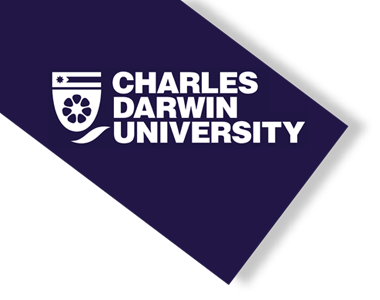Bachelor of Laws
Charles Darwin University
About
This course has been replaced by a 3 year Bachelor of Laws (WLAW02) from 2019 and applicants should refer to this newly accredited course when applying.
Students enrolled in this 4 year degree will be able to continue however consideration should be given to transferring to the latest course version.
The Bachelor of Laws course provides you with the academic foundation for admission to legal practice.
In that context, the course provides you with knowledge of the law, legal processes and legal principles and cultivates a capacity for legal research, analysis and communication.
There is a focus on the analysis, interpretation, evaluation and application of various sources of legal authority in order to construct solutions to legal problems.
The course also deals with theoretical perspectives on the law and encourages an appreciation of transnational law and of legal issues of special significance to the Northern Territory, including Aboriginal legal issues.
The degree can also be taken with honours.
This is a competitive course and you are encouraged to also apply for the Associate Degree of Legal Studies (115141) or the Diploma of Laws (116151) as an alternative pathway should you not meet the cutoff.
Note:
with the approval of the 3 year degree, 2019 applicants to this course (104381) will be required to change their preferences to the new course (104621).
Structure
Common Units(2 units) - 20cp
Common units totalling 20 credit points as detailed below.
CUC107 Cultural Intelligence and Capability AND EITHER CUC106 Design and Innovation: Communicating Technology OR CUC100 Academic Literacies Through Exploring Sustainability (new title from 2016)
Select Common Units to find out more about individual units and advanced standing options.
Core Units(15 units) - 150cp
Compulsory Core units totalling 150 credit points as detailed below.
LWZ112 Comparative Legal Systems LWZ114 Criminal Law LWZ115 Legal Process (replaces LWZ111 from 2016) LWZ116 Torts LWZ118 Contracts LWZ204 Constitutional Law LWZ210 Equity LWZ211 Trusts LWZ212 Transnational Law LWZ223 Property Law LWZ304 Administrative Law LWZ315 Corporations Law LWZ316 Evidence LWZ317 Civil Procedure LWZ320 Professional Responsibility
Specialist Elective(9 units) - 90cp
Units totalling 90 credit points selected from the list of available units detailed below.
LWA110 Legal History (offered each year) LWA111 Indigenous Peoples and the Legal System LWA112 Environmental and Planning Law LWA113 Customary Law (next offered 2021) LWA114 Law, Justice and the State (not offered in 2020) LWA133 Legal Reasoning (offered each year) LWA207 Dispute Resolution (previously LWS221) LWA210 Contemporary Issues LWA213 Family Law (next offered 2021) LWA217 Resources and Energy Law LWA219 Criminology (next offered 2021) LWA221 Human Rights Law LWA298 Legal Clinic (previously LWZ019) LWA316 Intellectual Property Law LWA317 Research Paper LWA319 Private International Law (next offered 2021) LWA321 Public International Law LWA322 Moot Court LWA325 Succession (next offered 2021) LWA328 Competition and Consumer Law (next offered 2021) LWA329 Conveyancing Law LWA331 Finance and Securities Law LWA332 Science and the Law (next offered 2021)
Electives(6 units) - 60cp
Units totalling 60 credit points may be selected from undergraduate units offered by the University.
When selecting electives, choose units at a suitable level. The first number in each unit code indicates the year level at which the subject is taught. Undergraduate units are coded at 100 to 300 level, therefore units coded as LWA1xx, LWA2xx and LWA3xx would be first, second and third year units respectively.
- 320cp
Total Credit Points
Entry requirements
Admission requirements are met by one of the following: Successful completion of the Northern Territory Certificate of Education and Training (or equivalent) and the awarding of an Australian Tertiary Admissions Rank (ATAR) of at least 80*. Successful completion of a national qualification at Certificate IV level or higher. Successful completion of at least 0.5 year of full-time study (or equivalent) of a higher education degree/diploma. Overseas secondary or tertiary qualifications considered equivalent to the above Australian qualifications. Attainment of a STAT Multiple Choice score of 135 (or a score of 145 if prior to May 2010). Successful completion of the Tertiary Enabling Program, the ACIKE Preparation for Tertiary Success courses, or other recognised tertiary preparation course. Submission of an acceptable personal competencies statement and/or employment experience. * After any applicable adjustment factors have been applied.
Institution
